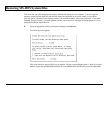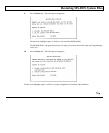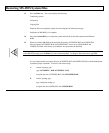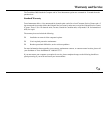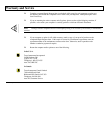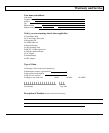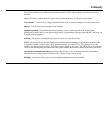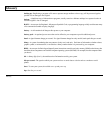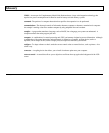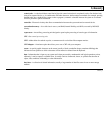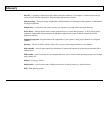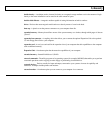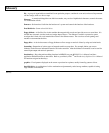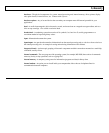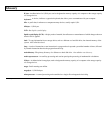
Glossary
brightness control -
A control that allows you to adjust the brightness of the display.
buffer -
A portion of the system's memory that temporarily holds information used by a program; for example, the
portion of a document you are working on while using a word processor.
bug -
An error in the hardware or software of your system that causes an operation to perform incorrectly.
byte -
A grouping of eight binary digits (bits) that your system treats as one unit; usually represents one character.
cache -
a software device that accumulates copies of recently used disk sectors in RAM. The application program
can then read these copies without accessing the disk, thereby speeding up the performance of the application.
central processing unit (CPU) -
The electronic circuits in your system where most processing of information takes
place.
character -
One of a set of symbols, such as letters, numerals, or punctuation marks, that can express information
when collectively arranged. Although these symbols are intelligible to humans, they are not understood by your
system. For this reason, standardized character codes consisting of groups of binary digits have been developed to
allow characters to be processed by computers. In most cases, a character is represented by 8 bits or 1 byte.
character set -
A list of codes, such as ASCII, that assigns a special standardized group of binary digits to each
character.
clock -
A timing device that coordinates all internal events in your system.
Glossary 3



